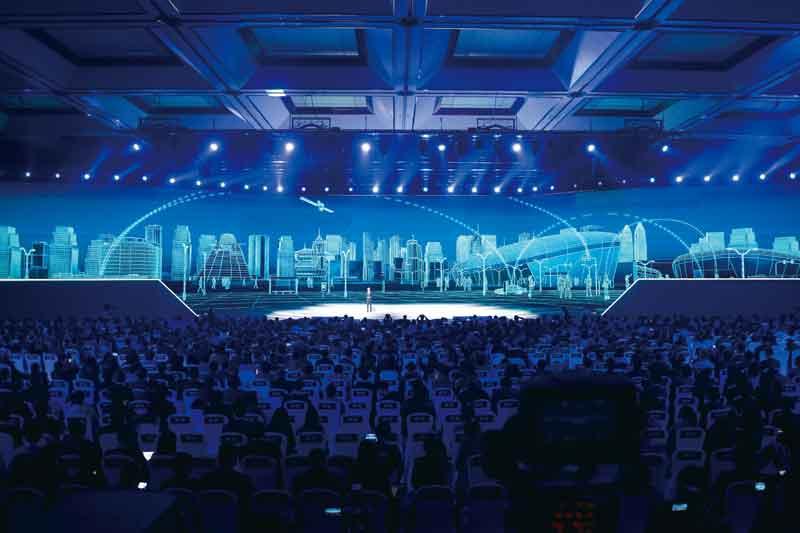The Fourth World Internet Conference was held in Wuzhen, southern Zhejiang Province, from December 3 to 5, where two reports (dubbed “blue books”) on the world’s and China’s Internet development were released.
The conference for the first time released an index system for global Internet development, which ranked the US, China, South Korea, Japan and Britain in the top five for having the most advanced Internet. The report also indicated that the Internet is shifting from “connecting people” to “connecting things.”
As an emerging advanced technology, AI (artificial intelligence) has become a focus of the conference – Jack Ma, founder of Alibaba, China’s biggest online shopping company and Apple Inc.’s CEO Tim Cook both talked about AI during the opening ceremony. Ma believed that AI will not surpass humans, since people possess creativity. He predicted that data will become a leading means of production in the next 30 years. Cook said he is worried less about robots learning to think than he is about people losing the ability.
With a theme of developing the digital economy and promoting openness and sharing, the conference exhibited more than 1,000 technical achievements collected worldwide, 18 of which generated a lot of buzz. These included Huawei’s 5G (fifth-generation of mobile communications) system for commercial use, Microsoft’s affective computing, like its XiaoBing chat bot, Apple’s ARKit (augmented reality) and China’s BeiDou Navigation Satellite System, a rival to GPS. Chinese achievements made up more than 60 percent of the 18 highly advanced systems – which are referred to in Chinese as “dark technologies.”
At the end of the conference, the participants talked about how Internet companies bear social responsibility, a topic which corresponded to Chinese President Xi Jinping’s idea that Internet development should focus on openness and freedom, management and services, security and progress.
The conference also reflected Xi’s Belt and Road Initiative by reaching an agreement on cooperation in the digital economy between seven nations, including China, Laos, Thailand, Turkey and the United Arab Emirates. The “blue book” on China’s Internet development revealed that China’s digital economy has risen to become the world’s second-biggest at 22.58 trillion yuan (US$3.5t), 30.3 percent of the country’s GDP.

 Old Version
Old Version